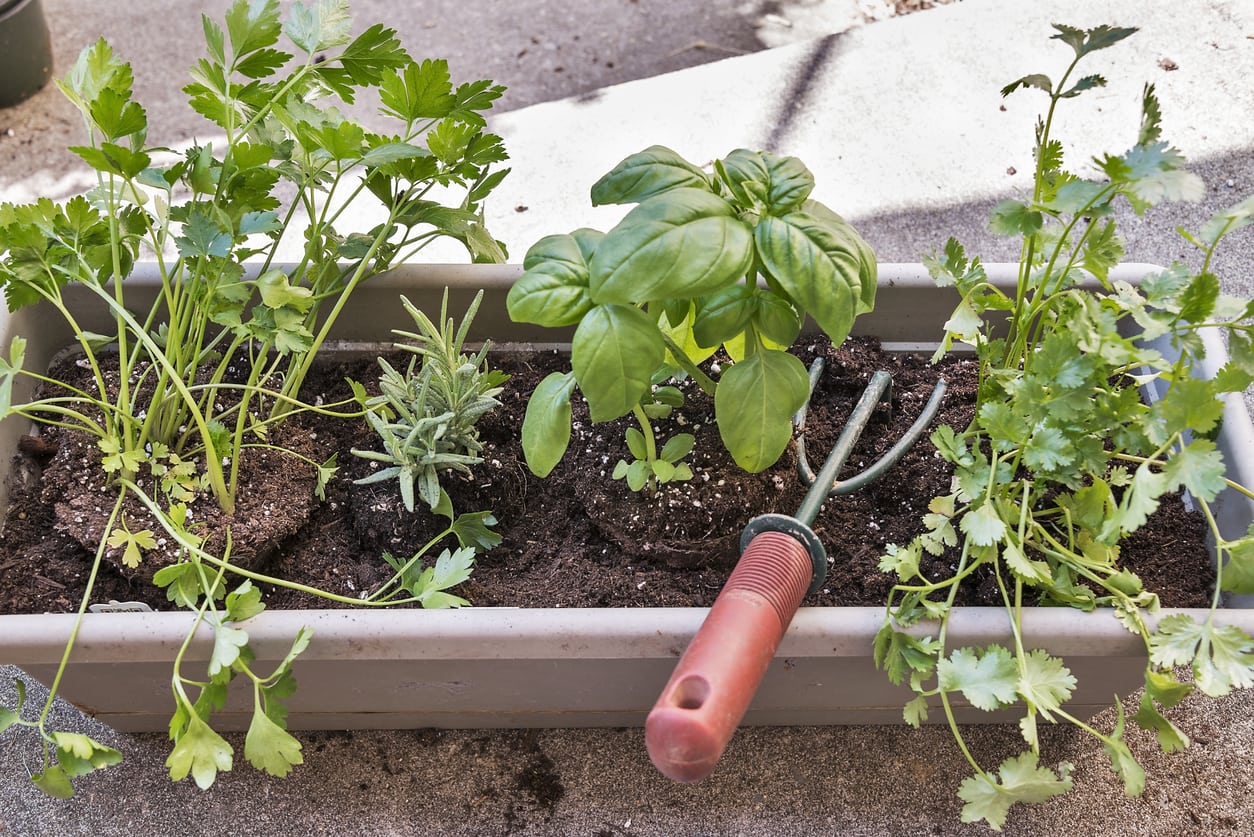What To Plant With Rosemary: Choosing Companion Plants For Rosemary


Sign up for the Gardening Know How newsletter today and receive a free copy of our e-book "How to Grow Delicious Tomatoes".
You are now subscribed
Your newsletter sign-up was successful
While you may be familiar with companion plants like the three sisters, herbal companion planting results in increased yield and fewer bad bugs. Plants that grow well with rosemary benefit from its strong scent and its low nutrient needs. Learn what to plant with rosemary for a healthier garden and one which profits from its aromatic and beautiful nature.
Herbal Companion Plants for Rosemary
Rosemary is good for more than the occasional chicken or potato dish. It has powerful scented oil which can attract or repel certain insects. Rosemary also keeps away some animal pests. It is even said to improve the flavor of sage when planted in proximity. So, the benefits to rosemary plant companions are numerous, plus you have another attractive herb that performs with honors in the kitchen. In a kitchen garden, the herb section is a must. Most herbs have low nutrient needs and perform well in dry, hot sites. Rosemary is also a perennial and evergreen in most regions and has year-around beauty. Some fun companions for rosemary are what I call the "Chicken Stuffing" herbs. These would be thyme and sage along with some alliums like onions or shallots. With these ingredients at hand, all you have to do is wash the chicken, put salt and pepper in and out, and then stuff it with handfuls of the herbs and alliums. Delicious, simple and easy once baked.
What to Plant with Rosemary
In deciding on your rosemary plant companions, consider their pest repelling properties. When you choose companion plants for rosemary, they should benefit from the plant's ability to fend off certain insects that attack crops. For instance, cabbage loopers, those little white moths that lay eggs on cruciferous vegetables, are repelled by the strong oils in rosemary. Any plant in the cabbage family, like broccoli, cauliflower and kale, can benefit from having rosemary nearby. Rosemary in proximity will prevent the rampant feeding of the larvae of these moths. It will also increase yields on carrots and beans by repelling certain beetles and carrot flies. Slugs and snails are also deterred from snacking on leafy greens when rosemary is nearby.
Tips on Growing Rosemary
More than enhancing the growth and health of plants that grow well with rosemary, the herb is a kitchen staple. Rosemary prefers a Mediterranean climate but certain varieties are quite cold hardy. It thrives in full sun and well-draining soil with pH of 6 to7. The plant needs continuous, average moisture but should never be soggy, a condition that can cause root rot. Harvest leaves at any time and use fresh or dry them for later use. The flavor and aroma is a common addition to lamb and poultry but also perks up bread and even some desserts. Making a tea out of the leaves is supposed to enhance memory. Adding leaves to the bath refreshes and revitalizes skin while the scent calms and relaxes the mind.
Sign up for the Gardening Know How newsletter today and receive a free copy of our e-book "How to Grow Delicious Tomatoes".

Bonnie Grant is a professional landscaper with a Certification in Urban Gardening. She has been gardening and writing for 15 years. A former professional chef, she has a passion for edible landscaping.